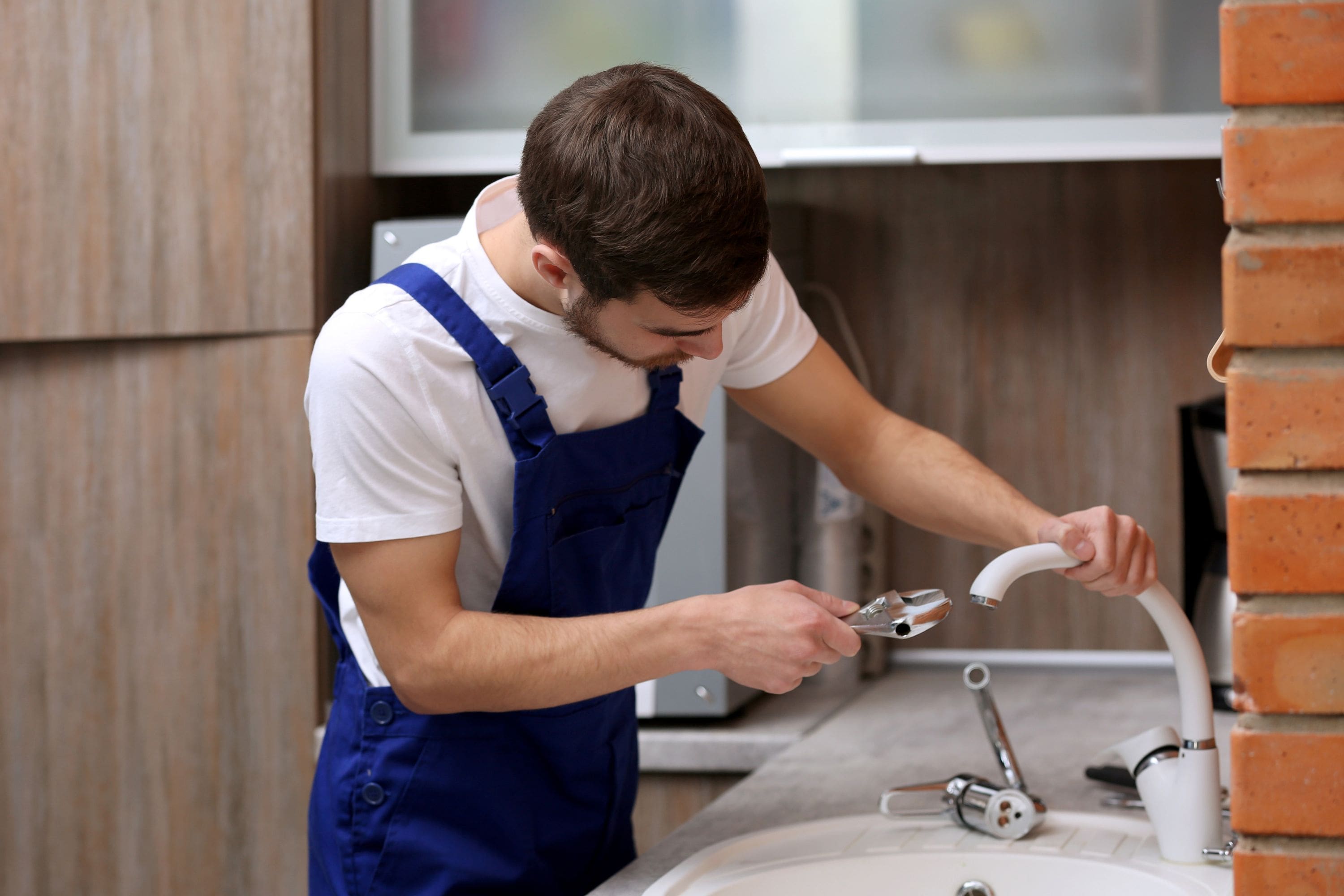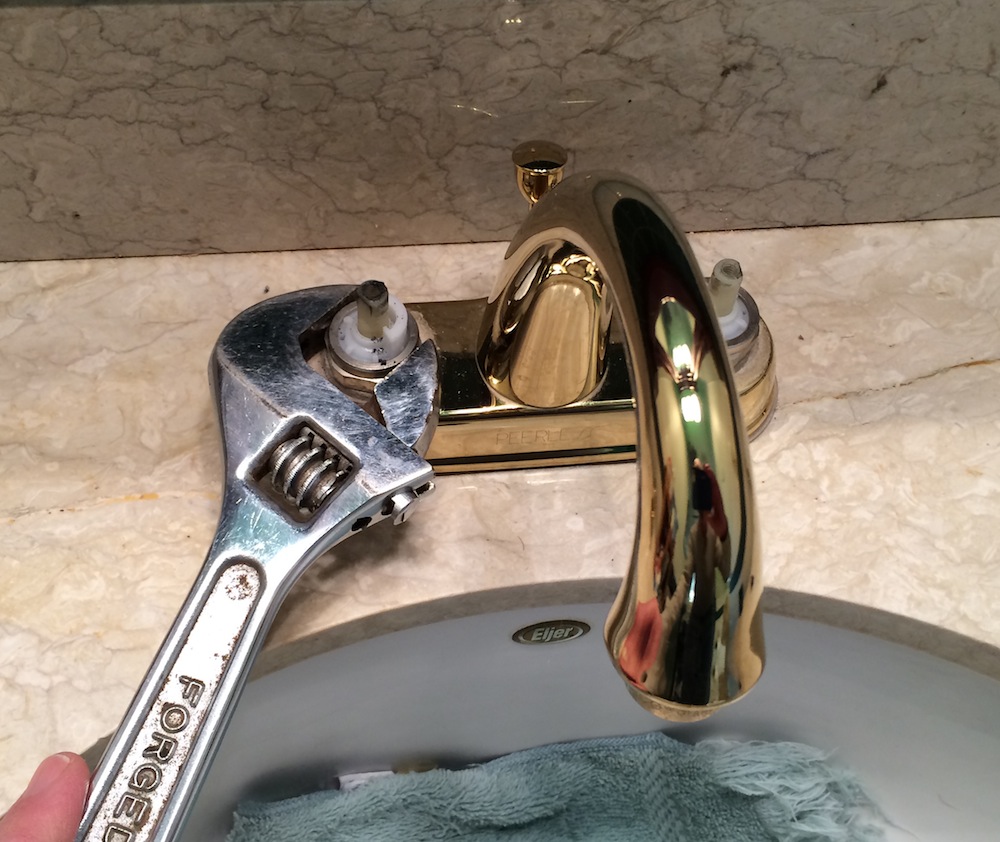This great article down the page on the subject of 4 Common Reasons for a Leaky Faucet is amazingly compelling. Try it and make your own conclusions.

Leaking taps could appear like a minor trouble, however their effect surpasses simply the nuisance of the noise. From drainage to sustaining unnecessary economic costs and health and wellness dangers, disregarding a dripping tap can cause different repercussions. In this article, we'll explore why it's crucial to address this common home issue quickly and properly.
Wastefulness of Water
Ecological Influence
Dripping taps contribute considerably to water wastage. According to the Epa (EPA), a single faucet dripping at one drip per secondly can throw away more than 3,000 gallons of water per year. This not only stress water sources but likewise affects ecosystems and wildlife depending on them.
Financial Prices
Enhanced Water Costs
Past the ecological influence, leaking faucets can inflate water costs considerably. The accumulated waste over time equates into greater energy expenses, which can have been stayed clear of with prompt repair services.
Prospective Property Damage
Furthermore, prolonged trickling can cause damage to components and surfaces surrounding the tap. Water accumulation can create discoloration, corrosion, and even structural issues if left neglected, causing added repair service costs.
Wellness Issues
Mold And Mildew and Mildew Growth
The continuous existence of moisture from a dripping faucet develops a suitable atmosphere for mold and mildew development. These fungis not just compromise interior air top quality but additionally posture health threats, especially for people with respiratory conditions or allergies.
Waterborne Diseases
Stationary water in leaking taps can end up being a breeding place for microorganisms and various other microorganisms, boosting the danger of waterborne illness. Pollutants such as Legionella germs flourish in stagnant water, possibly bring about major illnesses when ingested or inhaled.
DIY vs. Expert Repair service
Pros and Cons of DIY Repair Work
While some may attempt to take care of a trickling faucet themselves, do it yourself fixings include their own collection of difficulties. Without correct understanding and devices, DIY attempts can exacerbate the issue or bring about insufficient fixings, lengthening the trouble.
Benefits of Hiring a Specialist Plumber
Hiring a specialist plumber guarantees that the underlying reason for the dripping tap is addressed efficiently. Plumbing technicians have the competence and equipment to diagnose and fix faucet concerns efficiently, conserving time and decreasing the danger of further damage.
Step-by-Step Guide to Repairing a Dripping Tap
Tools Needed
Before attempting to take care of a leaking faucet, gather the needed tools, consisting of a flexible wrench, screwdrivers, replacement components (such as washers or cartridges), and plumber's tape.
Common Tap Issues and Their Solutions
Recognize the sort of tap and the certain concern causing the drip. Usual problems include damaged washers, rusty shutoff seats, or faulty O-rings. Describe supplier directions or online tutorials for detailed guidance on repair services.
Preventive Measures
Normal Upkeep Tips
To stop trickling faucets, carry out regular upkeep such as cleaning up aerators, checking for leakages, and replacing damaged parts quickly. In addition, consider installing water-saving tools or upgrading to much more effective fixtures.
Significance of Prompt Services
Resolving trickling taps as soon as they're discovered prevents additional water wastefulness and potential damage, inevitably conserving both water and cash over time.
Influence On Residential Or Commercial Property Worth
Understanding of Well-Maintained Building
Keeping a residential or commercial property in good condition, including resolving maintenance issues like leaking taps, improves its perceived worth and desirability among potential purchasers or tenants.
Influence on Resale Worth
Residences with well-kept plumbing components, consisting of faucets, command greater resale values in the real estate market. Attending to leaking taps can contribute to a positive impact during residential property inspections and settlements.
Environmental Obligation
Private Payment to Conservation
Taking obligation for taking care of trickling faucets aligns with broader initiatives towards water preservation and ecological sustainability. Every individual's actions jointly make a considerable effect on protecting priceless sources.
Sustainable Living Practices
By focusing on punctual repair work and taking on water-saving practices, people contribute to sustainable living methods that profit both present and future generations.
Final thought
Dealing with a trickling faucet surpasses mere benefit; it's a vital step towards preserving water, reducing monetary prices, and securing health and wellness and home. Whether with do it yourself repair services or professional support, acting to take care of trickling taps is a tiny yet impactful method to promote responsible stewardship of sources and contribute to a much healthier, a lot more lasting future.
How to Fix a Leaky Faucet: Step-by-Step Repair Guide
A leaky faucet may seem like a simple annoyance, but if it's not fixed promptly, that leak could cost hundreds to potentially thousands. From water damage to mold, mildew, and high water bills, even a tiny leak can be catastrophic if left unattended. Damage like this can even affect the overall value of your home, so it's important to take the right approach for leaky faucet repair. You may need the help of a plumber in some cases, but we've got a few tips you can try on how to fix a leaky faucet before calling the pros.
Four Faucet Types
When you're learning how to fix a leaky faucet, the first step is knowing what kind of faucet you're working with! There are four common types.
Cartridge Faucets
Cartridge faucets come in one- or two-handled varieties. In one-handled cartridge faucets, hot and cold water combines in a single cartridge. In the two-handled versions, hot and cold water are controlled separately and mixed in the faucet.
Ball Faucets
Ball faucets have a single lever you push up and down to adjust the pressure and rotate to change the temperature. A slotted metal ball controls the amount of water allowed into the spout.
Compression Washer Faucets
They're the oldest type of faucet, but they're still used in many homes — especially older ones. Compression faucets have two separate handles that, when turned, raise or lower the washer that seals a water valve. This valve stops water from flowing through the faucet when it is turned off.
Disc Faucets
Disc faucets rarely need to be repaired due to their maintenance-free design. The water flow is controlled by two discs — the upper one raises and lowers against a fixed lower disc, creating a watertight seal. If your disc faucet starts leaking, you may need to replace the seals or clean residue buildup from the inlets.
Fixing a Leaky Faucet
Step 1: Turn Off the Water
Whether you're learning how to fix a leaky bathtub faucet or how to fix a leaky kitchen faucet, always turn off the water supply to your working area when you're fixing a leak. The last thing you want is a flood added to your list of things to fix.
Look for the shutoff valves below your sink or around the tub and turn them clockwise to stop the water flow. If your faucet doesn't have shutoff valves, you may need to turn off the water for the whole house. Check to make sure it's off by turning the faucet on. If nothing comes out, you're ready to start the repair.
Step 2: Take Apart the Faucet
How you disassemble your faucet depends on the type of fixture you have. You can use a flathead screwdriver to remove the caps on top of the handle or handles for cartridge and compression faucets. Inside, you should see handle screws. Unscrew these with a screwdriver to remove the handle.
Disc- and ball-style faucets will typically have an inlet screw near the handle, and removing that will reveal the interior of the faucet.
Detach the Valve Stem
For cartridge- and compression-style faucets, you'll see the inner valve stem or cartridge once you remove the faucet handles. If you have a compression faucet, unscrew the brass valve stem. If you have a cartridge faucet, pull out the cartridge. If your cartridge has been in place for a while, it may require some tools or extra force to remove it due to mineral deposits.
Examine and Replace Parts
Once you've removed the parts, check them out to confirm what needs to be replaced. You may see corroded rubber washers, O-rings, stems, or cartridges. On a ball-style faucet, check the seats and springs for damage.
If you need to repair a leaky disc faucet, check the inlet and seals on the lower disc.
Once you determine what parts must be replaced, visit your local hardware store. Bring the damaged parts with you to ensure you can purchase the correct components to replace them.
Clean Valves and Faucet Cavity
If you've removed a stem or cartridge, you may notice mineral buildup in the faucet's threads. Use white vinegar to clean the valve seat by soaking it for a few minutes, then scrub it away with a soft toothbrush and rinse with warm water. You can also clean the interior of the faucet in the same way.
Reassemble the Faucet
Once your faucet is cleaned and the required parts have been replaced, it's time to reassemble it. Put the pieces back together and slowly turn the water supply back on. Doing this slowly is crucial because too much initial water pressure can damage the new hardware you've just installed.
https://homewarranty.firstam.com/blog/how-to-fix-leaky-faucet

As a reader about Water Dripping from Faucet: Why and How to Fix, I assumed sharing that excerpt was a good thing. Appreciated our post? Please quickly share it. Let somebody else find it. I take joy in your readership.